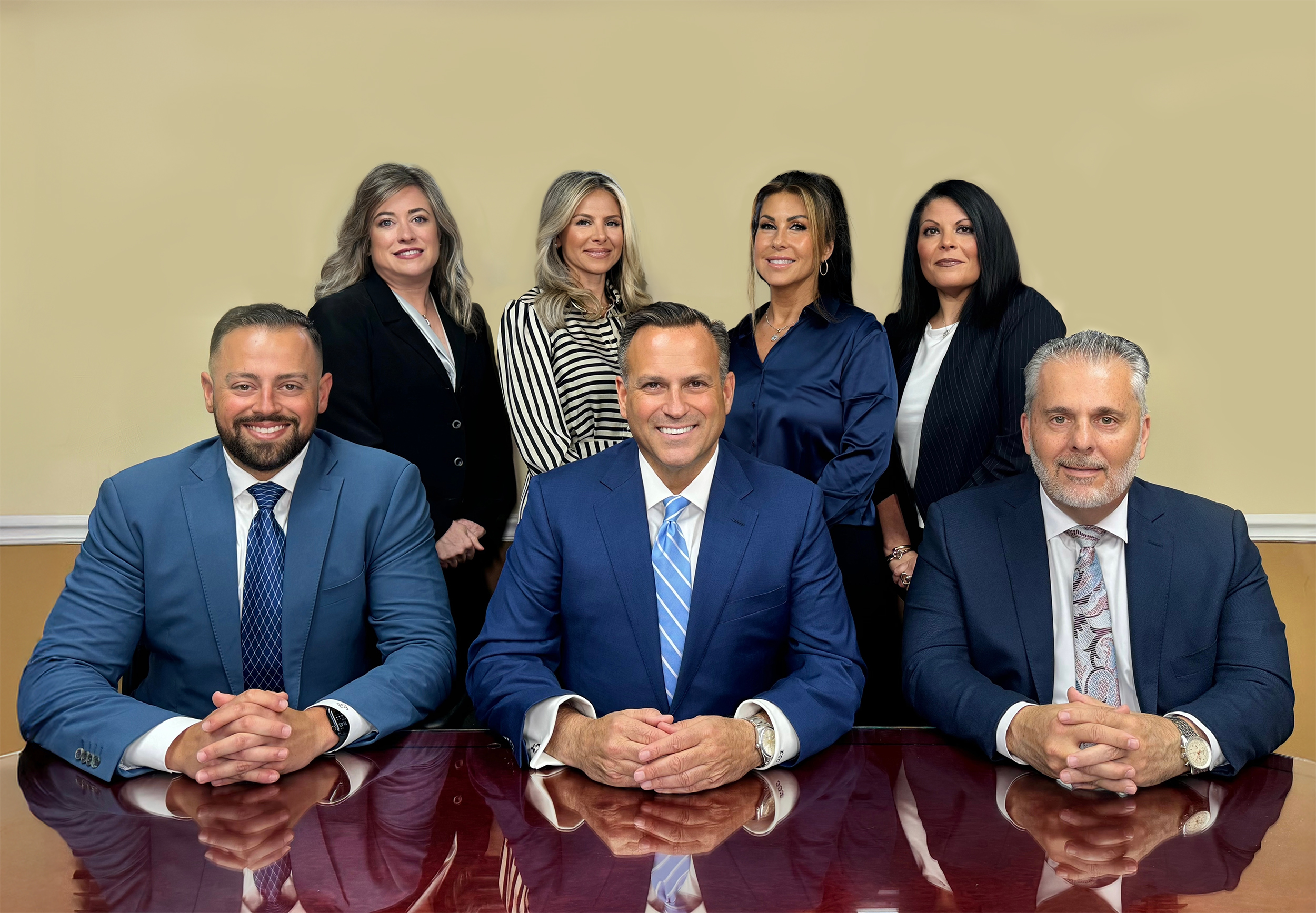Louis C. Ciliberti & Associates, Ltd.: Helping Entrepreneurs & Their Families Manage Assets

A little more than 10 years ago, when a client sold his company for $150 million, Louis C. Ciliberti, who leads Louis C. Ciliberti & Associates, congratulated the client. He also realized that transaction was part of a trend that would revolutionize his business.
The entrepreneur, who had sold his company, used to have a staff that included a general counsel, chief financial officer, vice president of human resources and more. He now had substantial assets, but not a staff to manage assets or help with many other things. Louis saw an opportunity as other local entrepreneurs aged and sold their companies.
“We built what became the family offices for people who no longer have their companies, but have money and investments,” Ciliberti said of his Plainview-based company.
While many people have “home offices,” Ciliberti’s company serves as a home office, managing assets and often other aspects of life for many wealthy businesspeople in the New York metropolitan area.
His company offers a multifamily office model tailored to entrepreneurs that can help deal with financial complexities including possibly the biggest challenge of all.
“It’s probably the transition from running their big business to overseeing investments, whether publicly traded or privately held,” Ciliberti said. “We do all the legwork, all the investigation.”
A client may want to invest in a real estate portfolio, which they would research. A businessperson may sell a building affiliated with a company they used to own.
“Maybe they want to go into something that can create revenue for generations, like a multi-family residential unit managed by a third party,” he said. “They and their family will collect rent from that for the rest of their lives.”

KNOWING NEEDS IN ADVANCE
Louis C. Ciliberti & Associates integrates personal and business financial planning, focusing on the expression “Success is a well served client,” which he trademarked.
“I tell people who work for me that this is a service business,” Ciliberti said. “Sometimes service is giving you what you think you need. Sometimes service is anticipating needs.”
When they read clients’ documents, they look for provisions allowing for special needs children.
“What if a child has an illness or is eligible to receive government assistance?” he asked. “You want to make sure the trust has language to allow that beneficiary to have a good quality of life but not violate rules where the government stops taking care of them.”
A BUSINESS IS BORN
Ciliberti first went into business in 1986, buying his family’s Coca Cola franchise in Brooklyn. He attended school at night and in 1990 he started in the financial services field.
“If you transferred a business from one individual to the next,” he said the tax could be 50%. If you had a $10 million company, you probably weren’t sitting on $5 million in cash.
“We showed them how to transfer assets at a discount, tax free, and how to use tax-free life insurance to leverage or discount estate taxes,” he said. “That was a really good business until talk of making the death tax go away.”
As the estate tax ceiling was lifted, he looked for other ways to serve clients, who often owned companies.
“We decided to expand our menu of services to offer wealth management,” he said, noting they offered more services for closely held and publicly held companies such as Manhattan-based Sterling National Bank.
They took care of pensions, profit sharing, 401(K) plans and medical benefits for employees, helping business owners facing increasingly complex estate, succession, and risk management challenges.
Just two days after the recent federal tax law was passed, they sent out an interpretation and evaluation of the law to their clients.
“I wanted to be the first one to tell them this is what the new tax law says and these are the areas that I think have the greatest impact,” he said.
As a custodian of hundreds of millions in assets, Ciliberti knows his business is about people.
“We pay attention to the clients’ needs,” he said. “How much risk do they want to take? Are they looking for growth? What are their income needs? They’re living off the portfolio. They don’t have the paycheck anymore.”
A PERSONAL TOUCH
The company today provides concierge-level services like bill pay, lending coordination, and benefit design.
“Clients want to know that you’re listening to them, they’re being prioritized. You’re focusing on their needs,” he said. “It’s not just a cookie cutter delivery. They are special. They need to be treated as such.”
The firm’s interdisciplinary approach leads to transformational outcomes for clients’ business and legacy plans, including impacts of income taxes, gift and estate tax laws.
“We like to design programs where mom and dad can feel comfortable moving an asset out of their right pocket so it goes into a trust for future generations tax-free,” he said. “We still leave them in control of the asset, so they have peace of mind. And we want them to be able to enjoy the income from the asset.”
They help business owners with financial planning, including a client in business for over 50 years who couldn’t find the right buyer and had no heir apparent. They helped set up an ESOP, selling the company to employees. The founder and employee-co-owners later sold the company at a premium.
“That’s a win-win for the business owner and the employees,” he said. “Both enjoyed a higher value payday.”
They also helped owners navigate what to do with real estate when one member wants to run the business.
“You design a way for the other children to benefit from the real estate and make sure you have appropriate leases signed between the operating company and the real estate entities,” he said.

RUNNING THE COMPANY
In addition to work, Ciliberti sits on the board of NY Edge, the after school program for the City of New York with a budget of over $70 million and thousands of students and teachers across the five boroughs and Wyandanch.
“These kids don’t have any place to go after school,” he said. “Many have both parents working.”
He also sits on the board of the New York State Troopers Memorial Fund, and Catholic Faith Network, organizations that he sees as in line with his personal and professional values.
“It’s giving back to the community, which has been rewarding for us, and helping others,” he added. “The troopers protect us. The memorial fund takes care of families where a trooper was injured or killed in the line of duty.”
The Catholic Faith Network is a TV station owned by the diocese of Rockville Center with affiliate arrangements with the Archdiocese of New York, as well as relationships with Brooklyn, Philadelphia and Ohio.
And he’s a proud “Ironman” triathlete whose experience training and competing helped shape a leadership style and business philosophy where effort is expected and difficulty can be dealt with.
Iron man is a 140.6-mile triathlon done in one day, including a 2.4-mile swim, 112-mile bike and 26.2-mile marathon.
“Finishing an Iron Man is a heck of an accomplishment,” he said. “If something goes wrong with your bike, on your swim, or your run, you’re on your own.”
That kind of event demands discipline, which comes in handy running a business and providing service to various clients.
“We describe race day as a victory lap,” he said. “You train for at least one year for that one day. That takes discipline.”
He used his triathlons to raise money for the Leukemia and Lymphoma Society, blood cancers primarily impacting people under the age of 21 known as “the kids’ cancers.”
At one point, he was the top fundraiser nationwide, he said, for Team in Training, the Leukemia and Lymphoma triathlon group started by a financial professional whose daughter was diagnosed with Lymphoma.
“They brought in coaches, taught people to swim, bike and run and became a fundraising arm,” he added.
Triathlons require discipline and endurance, qualities that are needed.
“You need to know where you’re going and stay on track,” he added. “You have to monitor your success along the way and make necessary adjustments, so you’re always moving forward toward your goal.”
WORK-LIFE BALANCE
As someone deeply rooted in family, he balances his professional intensity with his personal life.
“We focus on values. We believe values drive your decisions,” Ciliberti said. “My company’s top values are excellence, service, integrity and accountability. Some of my top values personally are health, happiness, family, learning and meaningful work. We also help our clients identify their top values and share them with their children.”
He believes when action aligns with aspiration, deeds match values, you’re more likely to be happy and at peace.
“You’re happiest when you’re actually living in alignment, where what you do is an illustration of what you identified as your top values,” Ciliberti said.
He sees his company as not just managing assets, but helping improve lives, providing security and support.
“We’re taking care of the family,” he said. “We’re taking care of the people. You learn about them. “
The daughter of a client called recently, saying a school didn’t want to continue specialized services regarding learning disabilities for a child. The family found a charter school nearby, but it charged $75,000 a year.
Ciliberti assured her that, with proper counsel, the district would pay for the school and later helped make that happen.
“You had to hear the sigh of relief from this young woman,” Ciliberti said. “Not only is her son going to get the attention he needs. All the real estate taxes she pays are going to pay for the tuition.”
He is looking forward to what comes next.
“We’re building a generational firm.” Louis’ son Joe Ciliberti graduated from UConn and spent the first five years of his career at the then-named Sterling National Bank (now Webster Bank, NA). Joe is now with Louis C. Ciliberti and Associates, Ltd. for almost five years and oversees its retirement plan practice. Louis states, “As we grow, the age demographic for our firm has become younger as we represent new generations of clients.”
PARTNER CONTENT









